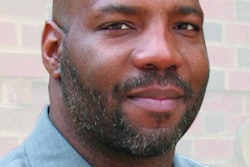Dr. Stephon Alexander is as intricate as the quantum theories he works to demystify. Seduced by two activities so utterly engaging there is no escaping their allure, Alexander fills blackboards with mathematical equations by day and satiates the musical palate of jazz enthusiasts by night with melodies from his bass saxophone.
A theoretical physicist, Alexander deals with the science of ideas. He sheds light on the unknown and discovers new ways to test the seemingly impossible.
“I work on big problems,” Alexander says, explaining his most recent research endeavor. “I’m working on the dark energy and matter problem, the recent observation that most of the substance in our universe around us is invisible to the eyes.”
Alexander is also known for his work on String Theory, a theory that describes all particles as one-dimensional strings. Alexander’s scientific roots stem from his childhood in the Bronx, N.Y., where his father, Keith Alexander, worked as a computer technician. When Alexander was 12 years old, his father brought home a used computer. Alexander used it to play video games.
“Video games were primitive back then, so I taught myself how to program better games. The computer was a perfect laboratory for me to learn the process of exploration, analysis and discovery; how to realize an idea and try to make it a reality,” says Alexander. Eventually, Alexander’s curiosity about the composition of computers led him to the library. “I discovered the words ‘quantum mechanics.’ Although I was mystified by the equations, I was hooked,” Alexander says.
The Caribbean-born Alexander is trailblazing a path for other scientists of color. His accolades are extensive. Alexander recently received the CAREER Award from the National Science Foundation and was honored by the National Geographic Society as an “Emerging Explorer.” Alexander credits much of his success and perseverance to another African-American physicist, Dr. Sylvester James Gates, the John S. Toll Professor of Physics at the University of Maryland, College Park.
“When I met Jim Gates, I saw him on the blackboards doing physics at the highest level. Having that sort of role model is more powerful than anything. It is what has inspired me to persist and become a professor. I didn’t really have A f r i c a n - Ame r i c an p h y s i c s p r o f e s - sors,” says Alexander, who completed his undergraduate studies at Haverford College, where he now teaches.




















